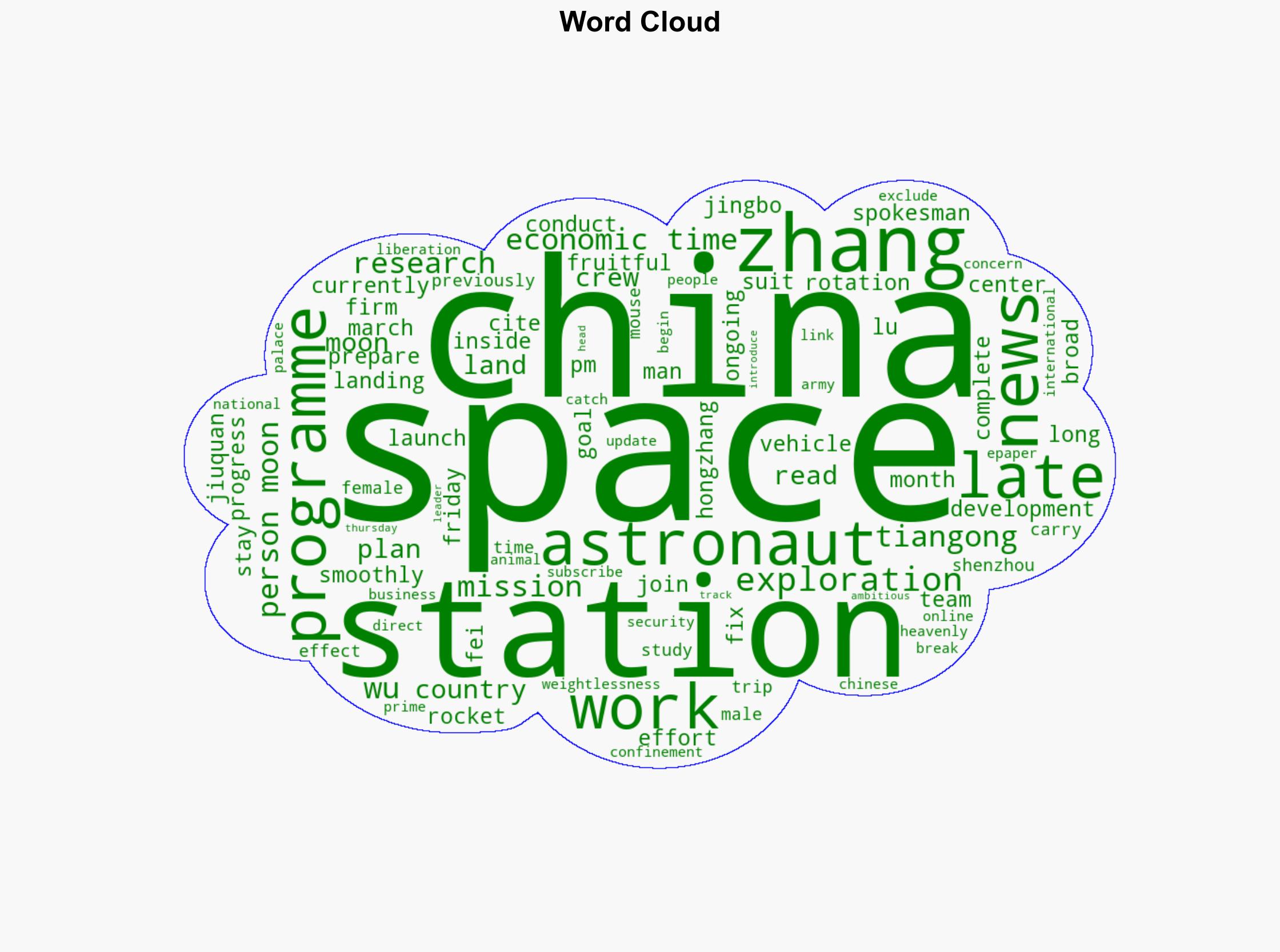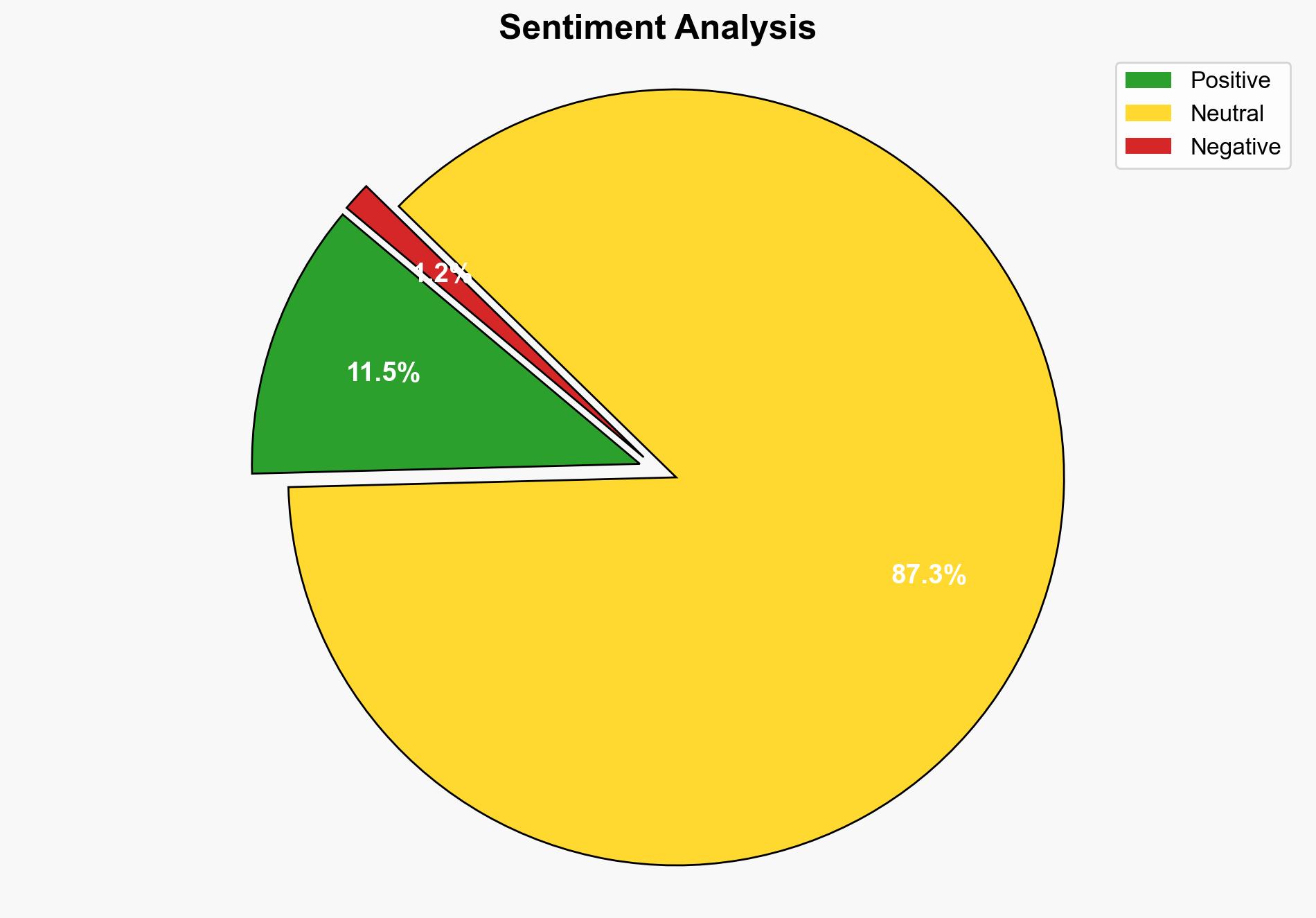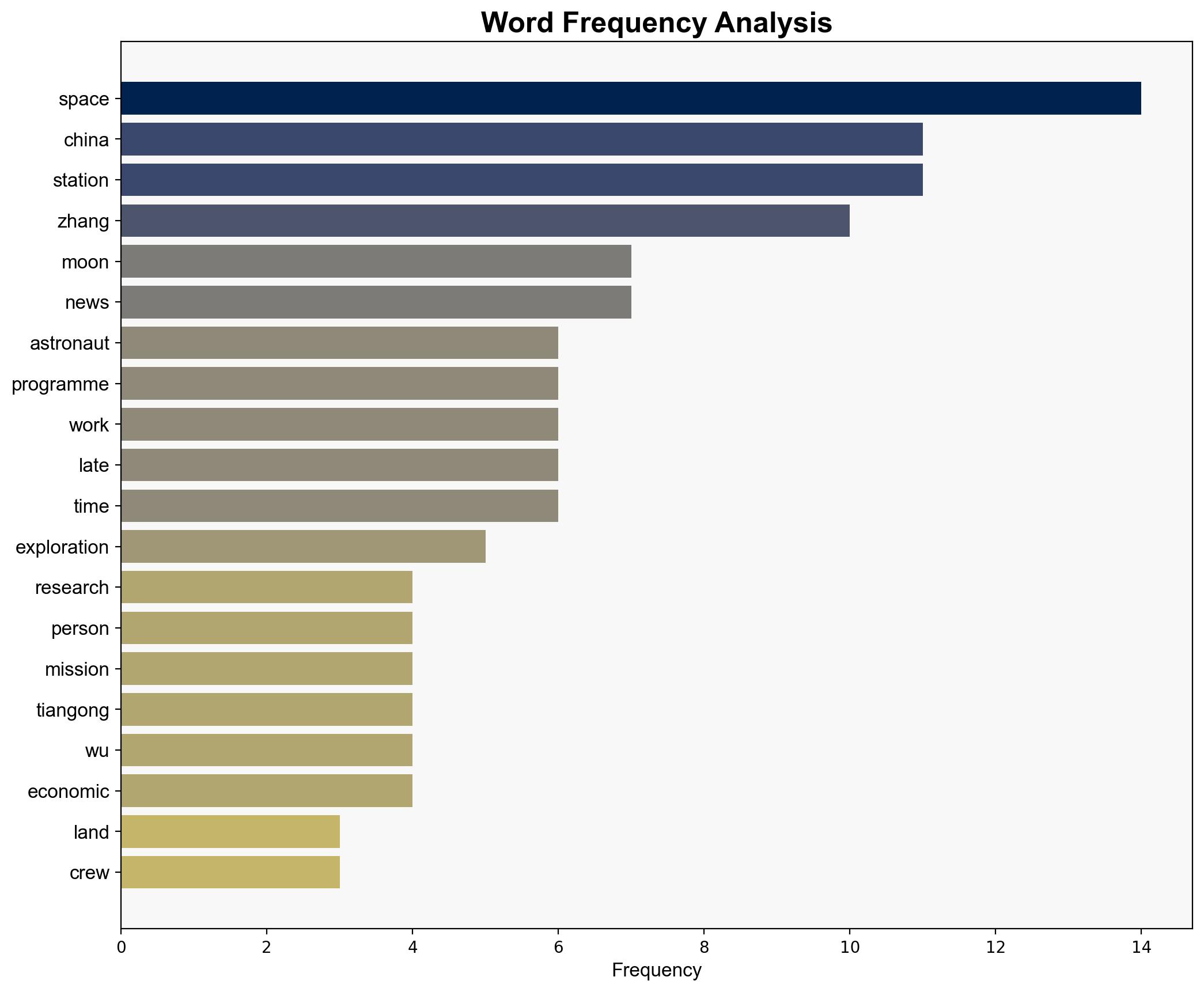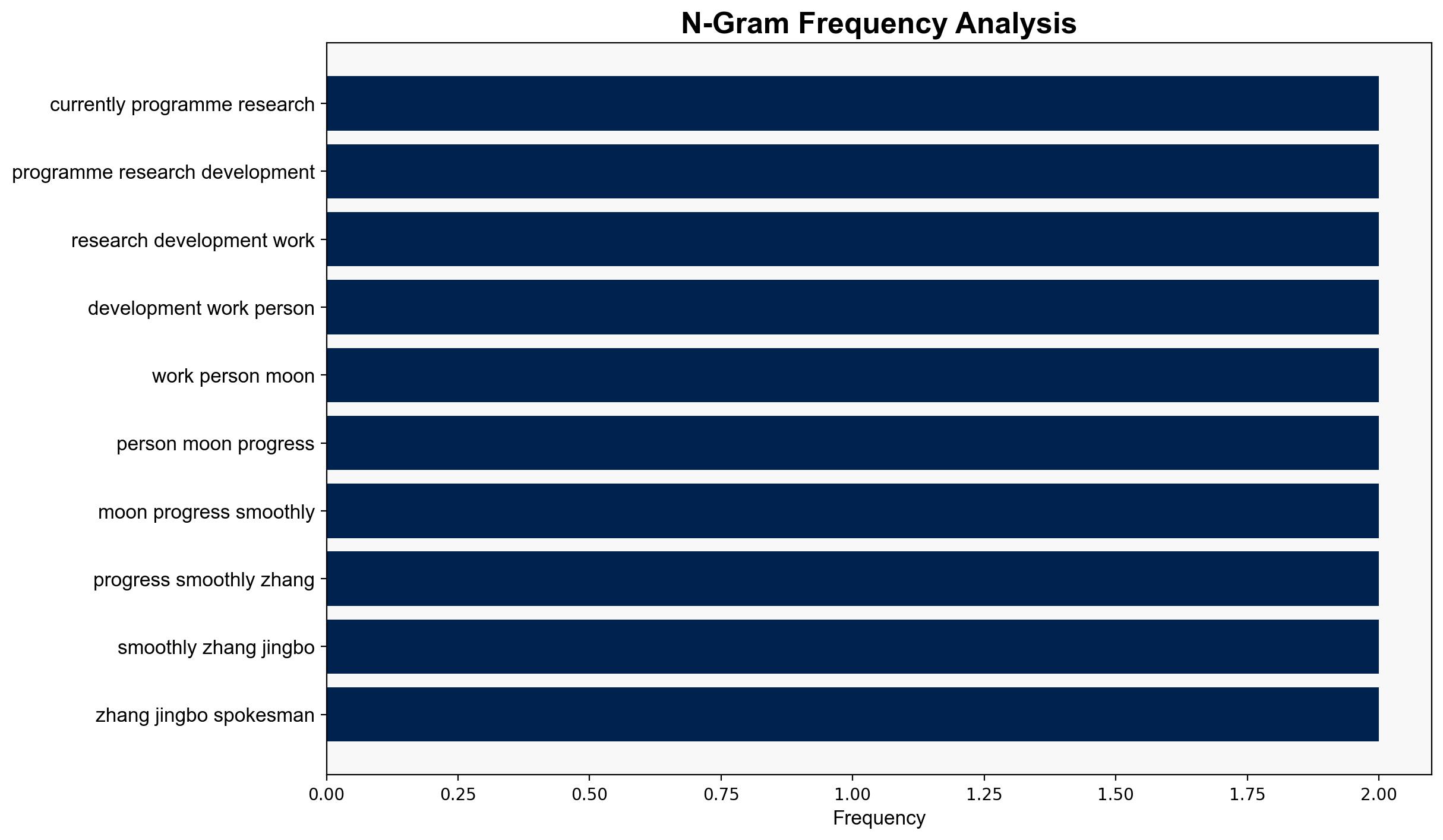China says it’s on track to land astronauts on the moon by 2030 ahead of space station mission – The Times of India
Published on: 2025-10-30
Intelligence Report: China says it’s on track to land astronauts on the moon by 2030 ahead of space station mission – The Times of India
1. BLUF (Bottom Line Up Front)
China’s announcement to land astronauts on the moon by 2030 is a credible strategic goal, supported by ongoing advancements in their space program, including the Tiangong space station. The most supported hypothesis is that China is genuinely advancing its space capabilities for both scientific and strategic purposes. Confidence level: Moderate. Recommended action: Monitor China’s space program developments and assess potential impacts on global space exploration dynamics and security.
2. Competing Hypotheses
1. **Hypothesis A**: China is on track to land astronauts on the moon by 2030 as part of a genuine effort to advance its space exploration capabilities and establish a strategic presence in space.
2. **Hypothesis B**: China’s announcement is primarily a strategic communication aimed at projecting power and technological prowess, with actual progress towards a moon landing being less certain.
Using ACH 2.0, Hypothesis A is better supported by the consistent progress in China’s space program, including successful manned missions and the development of necessary technology such as the Long March rockets and moon landing suits. Hypothesis B, while plausible, lacks substantial evidence of deception or exaggeration in the current context.
3. Key Assumptions and Red Flags
– **Assumptions**: China has the technological and financial resources to achieve a manned moon landing by 2030. The timeline provided is realistic given current progress.
– **Red Flags**: The potential for overstatement of capabilities to influence international perception. Lack of transparency in program details could indicate strategic obfuscation.
– **Blind Spots**: Limited insight into the internal challenges or setbacks within China’s space program.
4. Implications and Strategic Risks
– **Geopolitical**: A successful moon landing by China could shift the balance of power in space exploration, prompting responses from other nations, notably the US and its allies.
– **Economic**: Increased investment in space technology could spur economic growth and technological innovation within China.
– **Cybersecurity**: Potential for increased cyber espionage activities targeting space technology and infrastructure.
– **Psychological**: Enhanced national pride and international prestige for China, potentially influencing global perceptions of technological leadership.
5. Recommendations and Outlook
- Enhance monitoring of China’s space program developments through intelligence sharing and collaboration with allied nations.
- Invest in domestic space capabilities to maintain competitive parity.
- Scenario-based projections:
- **Best Case**: International cooperation in space exploration increases, leading to shared technological advancements.
- **Worst Case**: Increased militarization of space and heightened geopolitical tensions.
- **Most Likely**: China continues to make steady progress, achieving key milestones towards a moon landing by 2030.
6. Key Individuals and Entities
– Zhang Jingbo: Spokesman for China’s manned space program.
– Zhang Lu, Wu Fei, Zhang Hongzhang: Astronauts involved in recent space missions.
– Jiuquan Launch Center: Key facility for China’s space missions.
7. Thematic Tags
national security threats, space exploration, geopolitical dynamics, technological advancement




